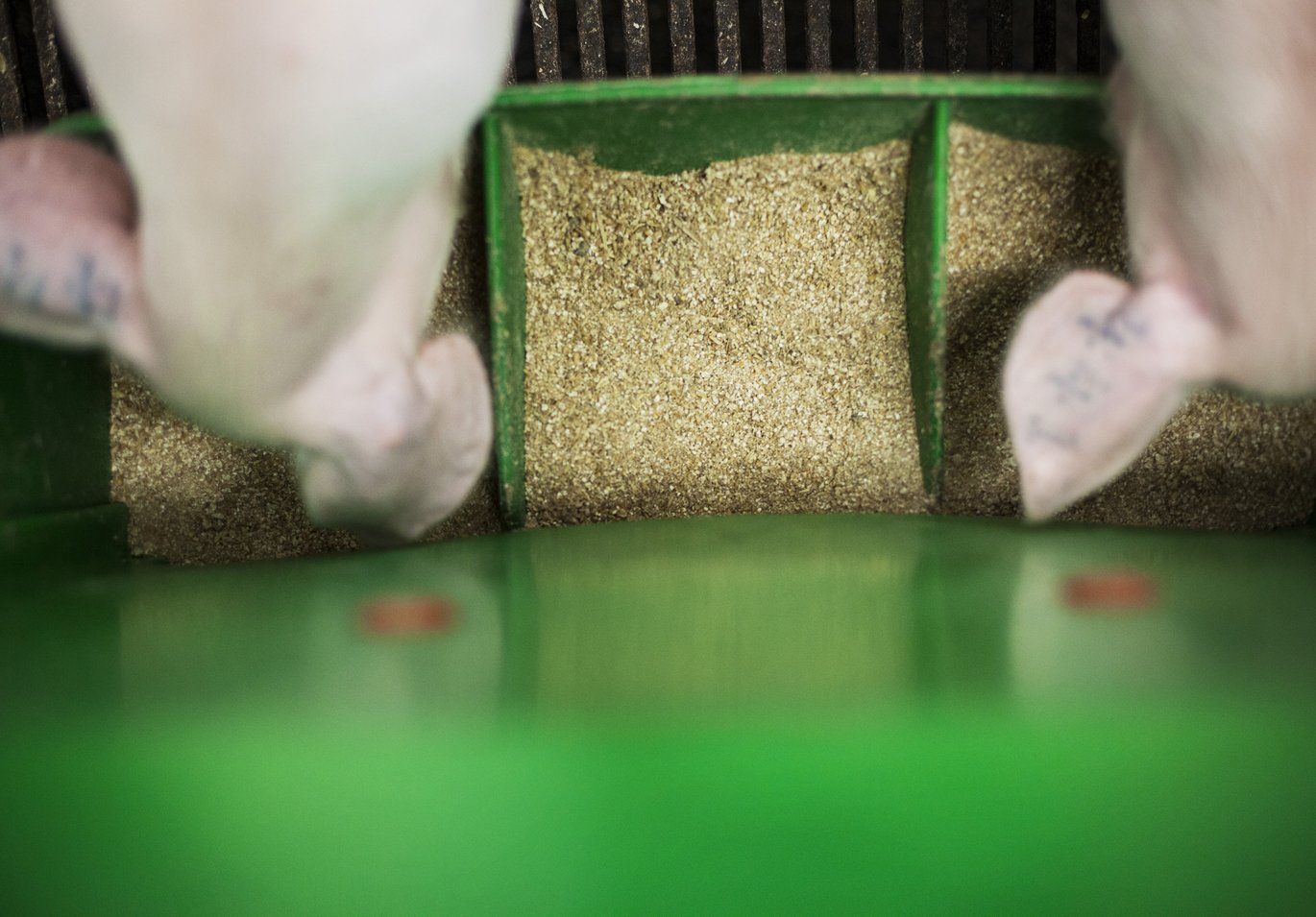Enzymes to make pigs healthier and more climate friendly
The development of a new feeding concept is expected to reduce the climate gas emissions from pig production. At the same time, it is expected that the concept will improve pig health and thus reduce the need for antibiotics and antimicrobial substances in pork production.

A new research and innovation project will develop a feeding concept to improve pig gut microbiota i.e., the microorganisms living in the gastrointestinal tract in pigs. The aim is to improve pig health, reduce methane emissions and improve pig growth performance and thus the overall production economy.
Danisco Animal Nutrition & Health, part of IFF’s Health & Biosciences division, and Aarhus University will develop the concept, and the preliminary results are so promising that Innovation Fund Denmark decided to grant 14 million DKK to this project.
- The concept builds on a new approach in which a supplemented enzyme is added to the feed. This enzyme will release so-called prebiotic substrates in the gastrointestinal tract in pigs, Project Manager Charlotte Horsmans Poulsen, Health & Biosciences, IFF, explains.
The prebiotic substrates will increase the development of a desirable gut microbiota composition with higher numbers of growth-promoting beneficial bacteria and fewer methanogenic archaea, which produce the climate gas methane.
- We expect that the new feeding concept will reduce methane emissions from pig production, improve pig growth and performance and increase the general health status in pig herds, says Charlotte Horsmans Poulsen.
Danisco Animal Nutrition & Health will be responsible for developing the enzyme concept, and Aarhus University will investigate the impact on pigs’ methane emissions. In addition, the impact of the enzyme on pig growth performance, feed efficiency, gut health, and immune response will be investigated.
- Compared to cattle, pigs emit far less methane per animal, but due to the considerable pig population size in Denmark, it is important to consider the possibilities of reducing emissions from pigs, says Senior Researcher Ole Højberg, Department of Animal Sciences at Aarhus University, who is also the coordinator of the university’s part of the project.
He further points out that one of the major potentials of the new feeding concept is a reduced climate footprint together with an improved pig health as well as a reduced dependence on antibiotics and other antimicrobial substances in production.
A high consumption of antibiotics results in resistance in the microorganisms at which the antibiotic treatment is targeted. Antimicrobial resistance is an increasing problem and is considered as a major global threat to public health.
Denmark has a huge pig production, and this means that approx. 75 per cent of the antimicrobials used for livestock in Denmark is applied to pigs.
Contact
Project manager Charlotte Horsmans Poulsen, Health & Biosciences, IFF. E-mail Charlotte.Poulsen@iff.com,
tel. 26 27 45 15
Senior Researcher Ole Højberg, Department of Animal Science, Aarhus University. E-mail ole.hojberg@anis.au.dk, tel. 61 38 40 70
Publicity and Media Manager Jens Bomholt, Innovation Fund Denmark. Tel. 61 90 50 45, e-mail: jens.bomholt@innofond.dk
Facts
Financing: Innovation Fund Denmark
Grant from Innovation Fund Denmark: 14 million DKK
Total budget: 27.6 million DKK
Duration: 3.5 years
Project title: Reducing methane emissions and improving growth performance and health with a novel enzyme applied to swine (MethEnzwine)
Partners: Danisco Animal Nutrition & Health, part of IFF’s Health and Biosciences and Aarhus University: Department of Animal Science and Department of Biological and Chemical Engineering
